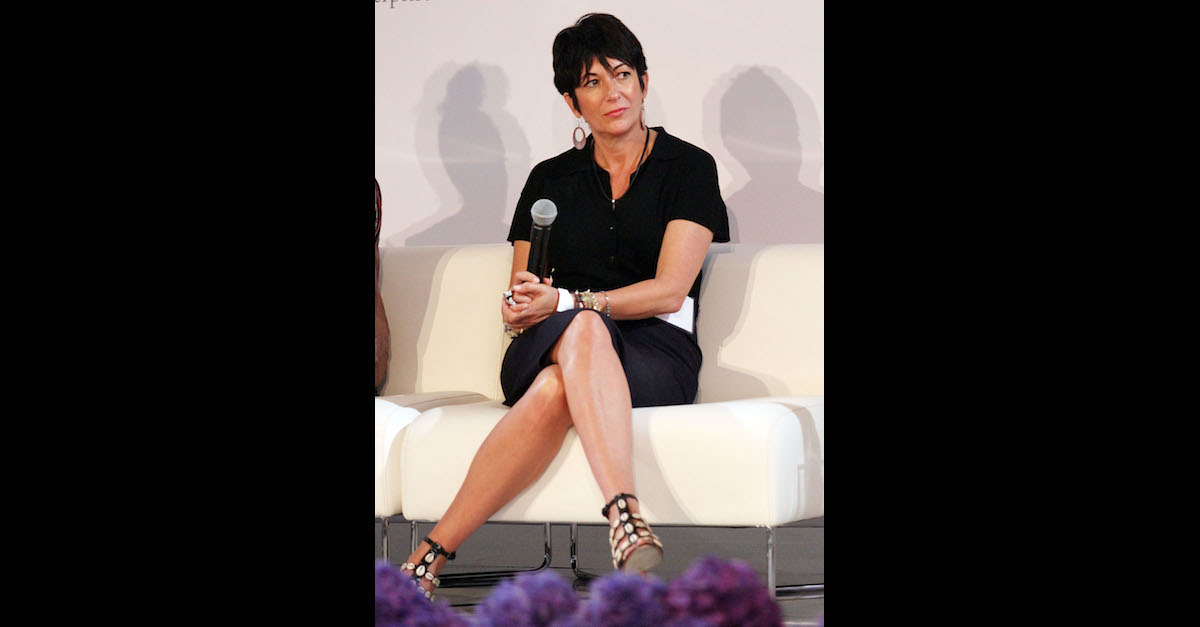
Alleged sex-trafficker Ghislaine Maxwell lost an appeal in her criminal case late Monday afternoon.
“We have reviewed all of the arguments raised by Defendant-Appellant Maxwell on appeal and find them to be without merit,” Second Circuit Clerk Catherine O’Hagan Wolfe wrote in the court’s summary order. “[T]he appeal is DISMISSED and the motion to consolidate is DENIED as moot.”
The upshot here is somewhat picayune: Maxwell filed her original request to file documents under seal so none of the details of that request are currently public knowledge. Additionally, her request would only have impacted documents that were never likely to become public in the first–or really any–instance. Finally, the appeals court’s denial of the request maintains the wall of judicial secrecy around what, exactly, Maxwell was attempting to put on the record.
Jeffrey Epstein’s longtime girlfriend and alleged co-conspirator unsuccessfully requested a court order modifying the overarching protective order in her criminal case in late August of this year.
U.S. District Judge for the Southern District of New York (SDNY) Alison J. Nathan denied Maxwell’s letter motion in a five-page opinion and order issued early September.
Specifically, Maxwell requested the judge to allow her to file secret documents under seal in “certain civil cases materials that she received in discovery” from the government in her ongoing criminal case on sex trafficking, conspiracy and perjury charges. She also requested the ability to “reference, but not file” additional discovery material produced by the government to her criminal defense team.
“Upon receipt of some of the discovery, [Maxwell] filed the instant request, which seeks modification of the protective order in order to use documents produced in the criminal case in other civil proceedings,” the court’s September order explains. “She bases her request on the premise that disclosure of the documents to the relevant judicial officers is allegedly necessary to ensure the fair adjudication of issues being litigated in those civil matters.”
Judge Nathan went on to rubbish Maxwell’s arguments:
But after fourteen single-spaced pages of heated rhetoric, the Defendant proffers no more than vague, speculative, and conclusory assertions as to why that is the case. She provides no coherent explanation of what argument she intends to make before those courts that requires the presentation of the materials received in discovery in this criminal matter under the existing terms of the protective order in this case. And she furnishes no substantive explanation regarding the relevance of the documents to decisions to be made in those matters, let alone any explanation of why modifying the protective order in order to allow such disclosure is necessary to ensure the fair adjudication of those matters. In sum, the arguments [Maxwell] presents to the court plainly fail to establish good cause. The Defendant’s request is DENIED on this basis.
Maxwell appealed the court’s order two days later–filing a notice of appeal with the Second Circuit Court of Appeals.
That appeal was shuttered by the appellate court in Monday’s summary order–which has no precedential effect because it is a determination that doesn’t contain a technical legal opinion. The three-judge panel did, however, take the time out to briefly dispense with some of Maxwell’s legal arguments.
The appeals court noted that they are bound by the final judgment rule which limits their jurisdiction to the “final decisions of the district courts.” And, because Maxwell’s criminal case is currently ongoing, there are “just four circumstances in criminal cases that come within” Supreme Court-issued exemptions to the final judgment rule.
“We decline to exercise jurisdiction where we have none, and accordingly dismiss this appeal for lack of jurisdiction,” the court’s order notes.
The circuit judges also dismissed Maxwell’s argument seeking a writ of mandamus forcing the district court to modify the protective order.
“Here, Maxwell failed to demonstrate that such exceptional circumstances exist and that the district court usurped its power or abused its discretion,” the Second Circuit noted. “Accordingly, we decline to issue a writ modifying the protective order.”
Maxwell, the alleged primary enabler of a years-long global child sex conspiracy also requested that her criminal case be consolidated with the ongoing civil case initiated by Epstein survivor Virginia Roberts Giuffre. The court quickly binned that request based on mootness due to their lack of jurisdiction but went on to characterize some of the defendant’s legal arguments.
“Here, the parties, judges, and legal issues presented in these appeals lack common identity,” the Second Circuit concluded. “The criminal appeal concerns a denial of Maxwell’s motion to modify a protective order while the civil appeal concerns an unsealing order. Further, as the district court correctly noted, Maxwell ‘provide[s] no coherent explanation’ connecting the discovery materials at issue in the criminal case to the civil litigation.”
Read the full order below:
Maxwell Second Circuit PO Summary Order by Law&Crime on Scribd
[image via Laura Cavanaugh/Getty Images]